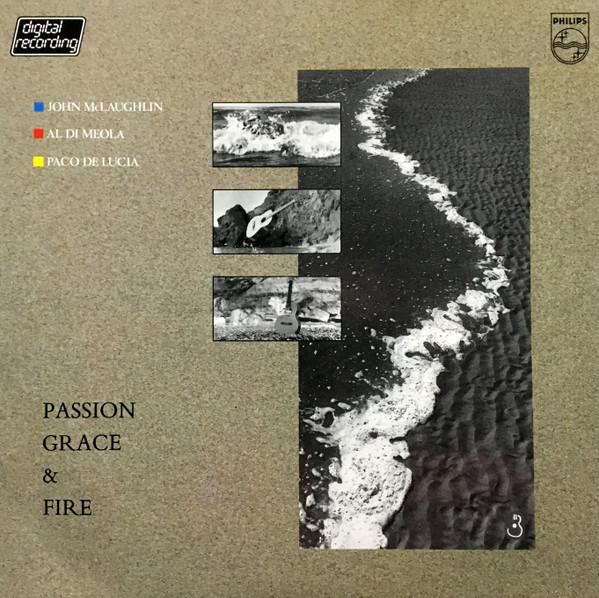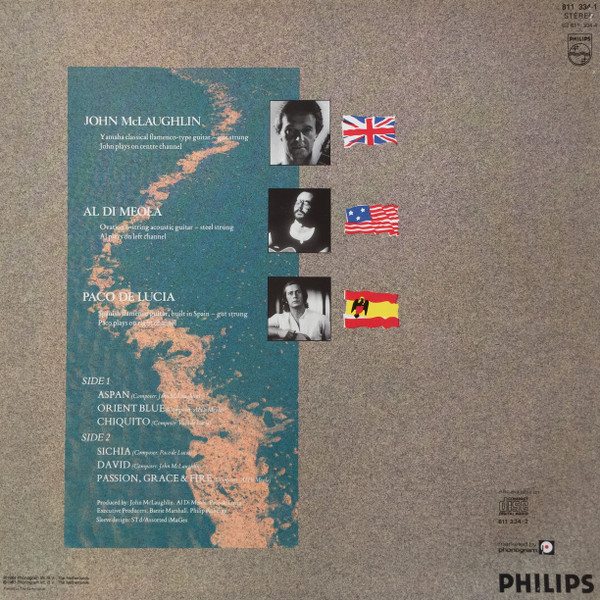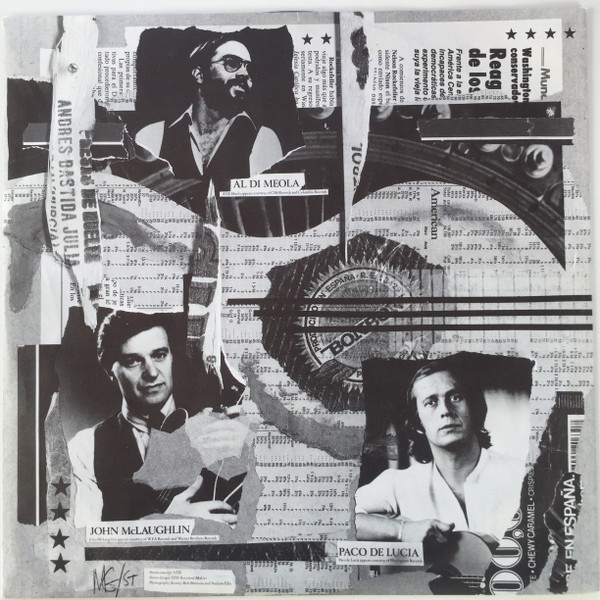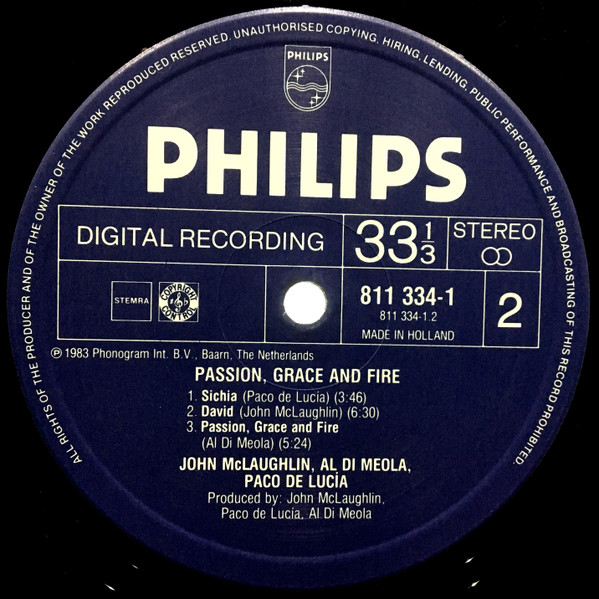Physical Address
304 North Cardinal St.
Dorchester Center, MA 02124
Physical Address
304 North Cardinal St.
Dorchester Center, MA 02124

Label: Philips
Cat No.: 811 334-1
Format: Vinyl (Netherlands)
Matrix/Stampers: (Side A, stamped): 811 334-1.1 – (Side B, stamped): 811 334-1.2


“Three voices, one flame — a conversation that never ends.”
There’s a quiet geometry in the way Passion, Grace and Fire unfolds — a triangular dialogue mapped across the stereo field, each guitarist defined yet inextricably bound to the others. Released in 1983, this collaboration between Al Di Meola, John McLaughlin, and Paco de Lucía feels like an act of disciplined expression: three voices articulating a shared language of rhythm, light, and form.
The album builds from the complex fast fingered flamenco style playing on Aspan through to the glorious coda of the title track, precision giving way to warmth. The composition evolves like architecture — lines intersecting, patterns forming, then dissolving back into air. McLaughlin holds the centre, Di Meola leans left, de Lucía anchors the right: three dimensions of tone in perfect balance. The stereo separation isn’t merely technical; it’s symbolic — a reminder that clarity can coexist with unity.
“David” is the emotional core of the record — delicate, searching, almost devotional. Its cyclical melody drifts between reflection and resolve, as if the trio were tracing an invisible horizon. There’s an intimacy here that resists analysis; each note lingers, edges softened by shared intent rather than virtuosity.


Throughout the album, the trio move between flamenco, jazz, and modern classical phrasing without ever settling into one form. The result is neither fusion nor pastiche, but something closer to conversation as composition. Their interplay embodies the album’s title: Passion in the drive and attack of each phrase, Grace in the restraint and silence between them, Fire in the energy that sustains their dialogue.
Heard on vinyl, the experience becomes tactile. The faint room ambience, the resonance of wood and string, the microtonal inflections — all take on a physical presence. What once sounded like a digital-era artifact now breathes again, its organic pulse restored by analogue space.
Over forty years later, Passion, Grace and Fire endures as more than a document of technical mastery. It is, at its core, an exploration of empathy through sound — a sonic geometry of understanding, where individuality is not erased but refined into harmony.
Listening note:
Best experienced on vinyl, late evening — volume low enough to hear the air between notes.
4.2 out of 5.0 stars